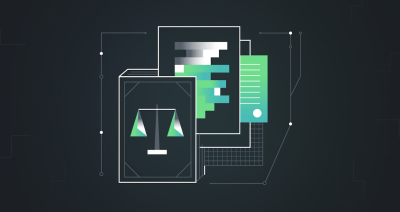
Using GitHub’s security features to help identify Log4j exposure in your codebase
Use GitHub’s security features to assess Apache Log4j exposure and, where possible, mitigate this vulnerability within your GitHub repositories.
Resources for securing your supply chain, building more secure applications, and staying up-to-date with the latest vulnerability research. Get comprehensive insights into the latest security trends—and news from the GitHub Security Lab. You can also check out our documentation on code security on GitHub to find out how to keep your code and applications safe.

Use GitHub’s security features to assess Apache Log4j exposure and, where possible, mitigate this vulnerability within your GitHub repositories.

How to exploit a double-free vulnerability in Ubuntu’s accountsservice (CVE-2021-3939)

GitHub has partnered with the OpenSSF and Project Sigstore to add container image signing to our default “Publish Docker Container” workflow.

GitHub Actions now supports OpenID Connect for secure deployment to different cloud providers via short-lived, auto-rotated tokens.

Recently, the Copyright Office responded to the calls to clarify the scope of protected security research.

In this post, I’ll use three bugs that I reported to Qualcomm in the NPU (neural processing unit) driver to gain arbitrary kernel code execution as root user and disable SELinux from the untrusted app sandbox in an Android phone.

The Exiv2 team tightened our security by enabling GitHub’s code scanning feature and adding custom queries tailored to the Exiv2 code base.

This blog post is the first in a series about hardening the security of the Exiv2 project. My goal is to share tips that will help you harden the security of your own project.

This post is a technical analysis of a recently disclosed Chrome vulnerability in the garbage collector of v8 (CVE-2021-37975) that was believed to be exploited in the wild. This vulnerability was reported by an anonymous researcher and was patched on September 30, 2021 in Chrome version 94.0.4606.71. I’ll cover the root cause analysis of the bug, as well as detailed exploitation.

On September 28, 2021, we received notice from the developer Axosoft regarding a vulnerability in a dependency of their popular git GUI client – GitKraken. An underlying issue with a dependency, called `keypair`, resulted in the GitKraken client generating weak SSH keys.

Today, we’re adding a proxy on top of the GitHub Advisory Database that speaks the `npm audit` protocol. This means that every version of the npm CLI that supports security audits is now talking directly to the GitHub Advisory Database.

GitHub’s bug bounty team is excited to kick off Cybersecurity Awareness Month with a spotlight on two security researchers who participate in the GitHub Security Bug Bounty Program.

In this post, I’ll exploit a use-after-free (CVE-2021-30528) in the Chrome browser process that I reported to escape the Chrome sandbox. This is a fairly interesting bug that shows some of the subtleties involved in the interactions between C++ and Java in the Android version of Chrome.

This post is a technical analysis of a recently disclosed Chrome JIT vulnerability (CVE-2021-30632) that was believed to be exploited in the wild. This vulnerability was reported by an anonymous researcher and was patched on September 13, 2021 in Chrome version 93.0.4577.82. I’ll cover the root cause analysis of the bug, as well as detailed exploitation.

npm access tokens will now follow the established format of GitHub authentication tokens.
Build what’s next on GitHub, the place for anyone from anywhere to build anything.
Catch up on the GitHub podcast, a show dedicated to the topics, trends, stories and culture in and around the open source developer community on GitHub.